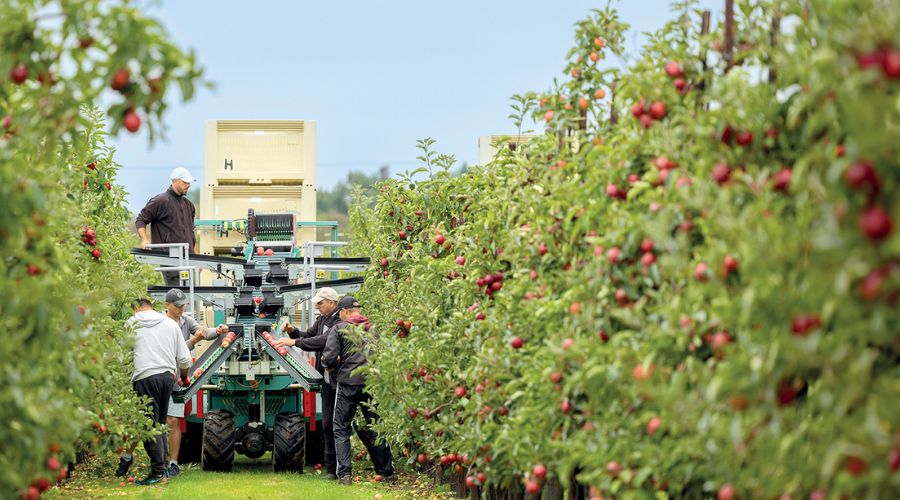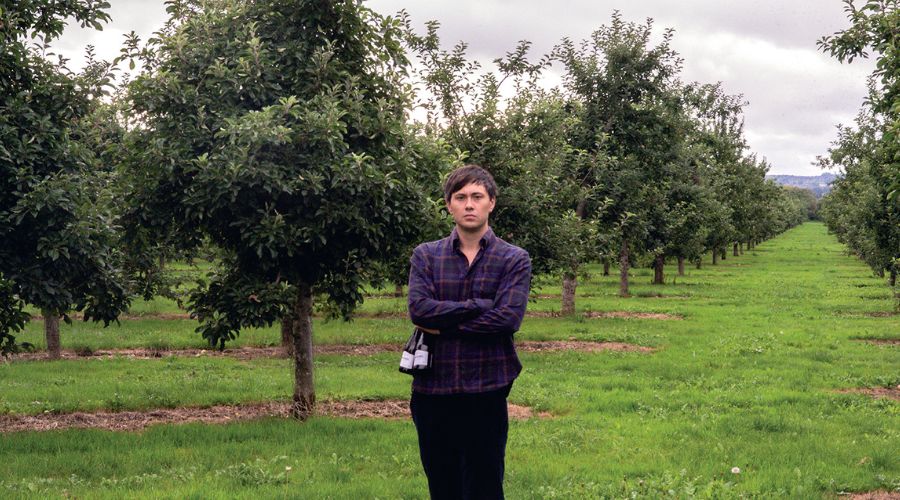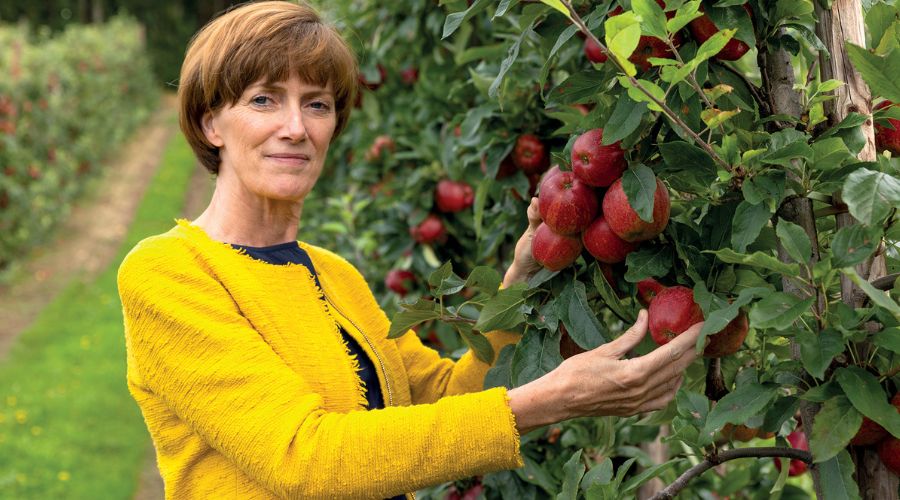Record rainfall impacts 2024 apple harvest
1st December 2024
With growers in parts of the country now suffering the effects of the eighth wettest winter on record in 2023/24, Sarah Kidby spoke to apple and pear growers for an update on this year’s harvest.

Record wet weather last winter, continuing into spring, has resulted in widespread reports of a lack of pollinators, with some growers also hit by tree damage, reduced yields and russeting. However, British Apples and Pears Limited (BAPL) has said overall volumes are as expected and excellent colour is being seen on fruit this year.
Yields down, but quality high
After a combination of adverse weather conditions and the strain of three consecutive strong harvests, Showerings Cider, based in Shepton Mallet, Somerset, is predicting a 70% reduction in apple yields this year – but quality remains superb, according to director Nick Showering. The 2024 harvest is expected to yield around 200 tonnes of Dabinett apples, compared to 600 tonnes in a typical year.
“My suspicion is it’s not just us that this has happened to,” Nick said, adding that the number of apples coming to Showerings for pressing from local growers was also very down this year.
Waterlogged soil during the winter months hindered air circulation to the roots, resulting in some root decay and increased susceptibility to disease, but pruning and care have since returned the affected trees to a healthy state – though some unfortunately died and will have to be replanted. Wet and windy conditions again in the spring meant that those blossoms that did appear did not flourish as well as usual and were at risk of being knocked off – as well as suffering quite badly from blossom weevil.
Fortunately, as Showerings Cider is a triple vintage they can draw more heavily on previous years to make up the shortfall. But without this, and taking on pressing and cider making for other growers, they would be in “real trouble”, Nick acknowledged. However, on a positive note, speaking in October, he said that although it was still too early to determine the precise flavour profile of this year’s crop, ‘off’ years often yield slightly larger apples, which can bring unique qualities to the cider.

Biodiversity is our defence
Joey Hughes, of orchard specialist Orchard Daughters in Machynlleth, Powys, said that while trees had coped with the wet, cold summer, there was a marked reduction in pollinator numbers this year. “Many fruit growers reported poor harvest due to poor pollination this year – by the time the insect populations got going, many orchards had already flowered.”
With winters getting milder and wetter, impacting tree dormancy, and summers often earlier and drier, prompting fireblight concerns, Orchard Daughters gives a lot of thought to the specific impacts of climate change. Joey said the “truly worrying trend from it all is unpredictability”.
He explained: “With our own pears we’re looking at only planting them on Pyrodwarf as this at least offers some fireblight resistance. We are also adding more Asian pears into the mix as these have lower dormancy requirements. And we’re making extra efforts to build up habitats and food sources for both beneficial predator insects and the full range of primary and secondary pollinators. As ever, biodiversity in its widest sense is our defence.”

“Harvest is going well”
Despite the challenges, Ali Capper, executive chair of BAPL said the overall impression of the harvest is positive, noting the excellent colour on fruit. Speaking in October, she said: “The harvest is going very well. The early and main season varieties are now almost all picked and we’re moving into picking for varieties like Braeburn, Jazz and Kissabel now.
“Our growers are reporting excellent colour on the fruit this year. If you’ve seen any of our recent ‘#OrchardWatch’ social media posts you’ll see the amazing vibrancy of skin colour this year.
“The volumes are as expected, but I think one small change has been to the size of the fruit. We were expecting fruit to be a little larger than average, but actually we are generally pretty much on track for the usual supermarket specifications.”
One challenge, however, is a small amount of russeting. “Our growers are working closely with retailers to ensure that these fruits are not wasted and that they are sold in the main packs and not in low value packs that jeopardise grower returns. We are also using our social media channels to educate shoppers that a few russet marks don’t affect the great eating experience of British apples,” she concluded.
Read more fruit news.
